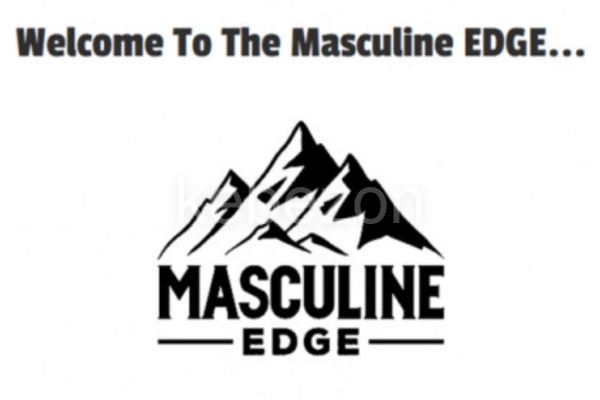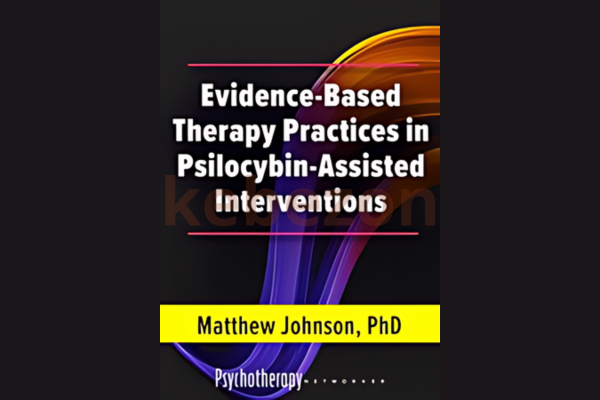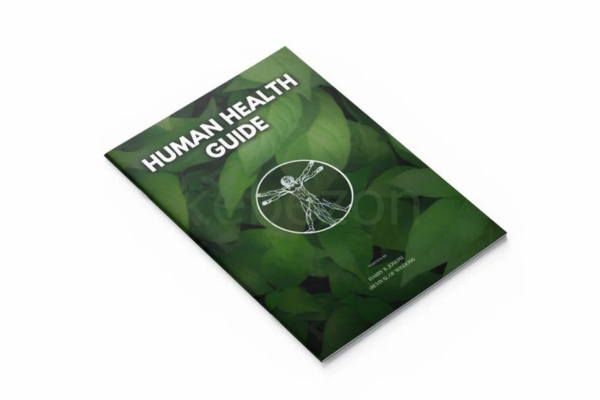Masculine Edge with Dr. Farhan Khawaja
5,00 $
You may check content proof of “Masculine Edge with Dr. Farhan Khawaja” below:
Masculine Edge by Dr. Farhan Khawaja
Understanding the nuances of masculinity in today’s world is an evolving journey, and Masculine Edge, authored by Dr. Farhan Khawaja, plays a pivotal role in shedding light on this topic. Dr. Khawaja offers readers an integrated exploration of how masculinity intertwines with key health elements such as testosterone levels, mental well-being, lifestyle choices, and emotional resilience. The “masculine edge” refers to a profound understanding of what it means to be masculine in a societal landscape characterized by shifting gender roles. This framework not only emphasizes physical prowess and virility but also reinforces the importance of emotional health, social connections, and vulnerability.
With increasing awareness of health disparities among men, Dr. Khawaja’s insights resonate more than ever. By encouraging men to embrace holistic health approaches, he promotes a redefined masculinity that prioritizes wellness and emotional intelligence. This introduction to Masculine Edge sets the stage for a deeper dive into topics such as understanding testosterone levels, recognizing signs of low testosterone, exploring natural ways to balance this critical hormone, and the role of lifestyle, nutrition, and mental health in shaping masculine identity.
Understanding Testosterone Levels
Testosterone, often associated with masculinity, functions as a critical hormone in the male body, influencing not only physical characteristics but also emotional health and overall vitality. To paint a picture, think of testosterone as the conductor of an orchestra; without its rhythm, the performance can feel disjointed and chaotic. Research has consistently documented that testosterone plays significant roles in sexual function, muscle development, mental resilience, and more.
For instance, healthy testosterone levels can correlate with increased energy and zest for life, while a deficiency may lead to fatigue and mood fluctuations. A comparative analysis of testosterone levels across different age groups reveals an intriguing trend. On average, men aged 30-40 typically have higher testosterone levels than their older counterparts. However, by the age of 70, testosterone levels can decline significantly, akin to an orchestra losing its conductor’s baton. This decline can lead to various health challenges, underlining the importance of understanding and monitoring testosterone levels, especially as men age.
To facilitate this understanding, the following table summarizes key testosterone levels found in different life stages:
| Age Range | Average Testosterone Level (ng/dL) |
| 20-29 years | 270 – 1,070 |
| 30-39 years | 400 – 1,200 |
| 40-49 years | 300 – 1,000 |
| 50-59 years | 200 – 800 |
| 60+ years | 200 – 500 |
This decline can have ramifications for men in terms of health outcomes, emotional stability, and even sexuality, making it essential to recognize how and why testosterone levels fluctuate across the lifespan.
The Importance of Testosterone for Masculine Health
Testosterone is not only a defining hormone of masculinity but also a fundamental component that underpins various facets of health. Much like the foundation of a well-constructed building, testosterone supports the overall structure of male health encompassing physical, sexual, and even emotional well-being. It is vital in regulating bodily functions that particularly resonate with how men perceive strength, endurance, and vitality.
First and foremost, testosterone governs sexual health, influencing libido and erectile function. Studies underscore that lower levels of testosterone are directly linked to reduced sexual desire, which can significantly affect intimate relationships and self-esteem. Furthermore, testosterone plays a pivotal role in muscle mass buildup and retention, which translates into greater strength and endurance. Men with optimal testosterone levels often display enhanced physical performance, both in athletic pursuits and daily activities.
Moreover, testosterone contributes to bone density and strength. Individuals suffering from testosterone deficiency face a heightened risk of osteoporosis and fractures, showcasing just how crucial this hormone is for structural integrity. There’s a direct correlation between testosterone levels and mental health as well; studies indicate that men grappling with low testosterone often report feelings of depression and anxiety, illustrating how interconnected our physical and mental states are.
Low testosterone levels can also translate to increased body fat, particularly in the abdominal region, which has its own set of health implications. Thus, testosterone acts as a multifaceted player in the realm of health affecting sexual function, muscle and bone health, and mental stability. In conclusion, recognizing and maintaining healthy testosterone levels is key for overall masculine health.
Signs of Low Testosterone Levels
Low testosterone often dubbed “low T” can manifest in numerous signs that extend beyond mere physical indicators. Imagine encountering an unwelcomed guest; low testosterone can creep into various dimensions of a man’s life before he even realizes its presence.
Common manifestations include:
- Decreased Libido: A noticeable reduction in sexual desire is a hallmark symptom of low testosterone. Men have reported a decline in interest in sex, which can lead to relationship strains.
- Erectile Dysfunction (ED): Difficulty achieving or maintaining an erection can often be tied to insufficient testosterone levels. This not only affects physical intimacy but affects emotional bonds.
- Fatigue and Low Energy: A pervasive feeling of exhaustion can plague men with low T. Routine activities may seem cumbersome, and motivation may wane.
- Loss of Muscle Mass: Testosterone’s crucial role in muscle mass means deficiencies can lead to decreased strength. This change can also contribute to a reduced sense of virility and physical confidence.
- Mood Disturbances: Many report increased irritability and mood swings. Low testosterone can also coincide with feelings of sadness or depression, compounding the frustration linked to its physical symptoms.
- Increased Body Fat: Individuals may notice more weight gain, especially around the belly, as an imbalance can lead to issues like metabolic syndrome.
- Decreased Bone Density: Low T can increase susceptibility to fractures and osteoporosis, affecting overall mobility and life quality.
Recognizing these signs is the first step toward seeking help, as identifying low testosterone levels can lead to effective management strategies.
Natural Ways to Balance Testosterone
Achieving balance in testosterone levels doesn’t always necessitate medical interventions; many natural methods can be employed. Lifestyle choices can significantly impact hormonal balance, leading to more holistic health outcomes. Picture carving a sculpture each action, from diet to exercise, shapes and refines the final outcome.
- Regular Exercise: Resistance training and high-intensity interval training (HIIT) are particularly effective in enhancing testosterone production. Both forms of activities create conditions for acute spikes in testosterone, fostering a positive feedback loop.
- Weight Management: Maintaining a healthy weight is integral, as even modest weight loss can stimulate an increase in testosterone levels. A balanced diet low in processed foods and high in lean proteins, healthy fats, and whole grains plays a critical role.
- Quality Sleep: Adequate, quality sleep can significantly influence hormone production. Striving for 7-8 hours per night can optimize testosterone levels, fostering overall well-being.
- Stress Reduction: Given that chronic stress elevates cortisol levels an antagonist of testosterone effective stress management through mindfulness practices, yoga, or deep breathing techniques is vital.
- Nutrition: Incorporating testosterone-boosting foods into your diet such as avocados, nuts, dark leafy greens, and foods high in zinc and vitamin D can help maintain or enhance testosterone levels.
Equipping oneself with knowledge about these natural methods can empower men to reclaim control over their hormonal health, enhancing overall well-being.
Impact of Lifestyle on Masculine Edge
The modern exploration of masculinity recognizes the significant role lifestyle choices make in shaping one’s masculine identity. Think of lifestyle as a ‘garden’ what you cultivate reflects not just survival but thriving, providing a rich harvest of health, emotional strength, and resilience.
Research highlights the link between lifestyle habits and masculinity. Engaging in regular physical activity, proper nutrition, and stress management contributes to healthier testosterone levels and encourages a more balanced masculine persona. Men who uphold traditional masculine ideals may find themselves hesitant to adopt health-promoting practices, often adhering to deep-rooted norms that can be counterproductive to their well-being.
For instance, studies show that those who strongly identify with traditional masculine roles exhibit poorer nutritional habits, which can lead to health complications. Transforming these behaviors requires dismantling old stereotypes and creating a space where vulnerability and emotional openness are celebrated rather than stigmatized. Adopting a modern approach allows men to redefine their identity in alignment with healthier values, leading to more fulfilling lives.
By acknowledging the complexity of lifestyle dynamics, Dr. Khawaja emphasizes that embracing change is not just about physical health; it is an essential intellectual and emotional exercise in redefining masculinity itself.
Nutrition’s Role in Enhancing Masculinity
Nutrition serves as a cornerstone for achieving optimal health and embodying a successful masculine edge. Imagine nourishment as the fuel that powers a high-performance vehicle; poor-quality fuel diminishes performance and efficiency, while high-quality nutrition enhances it.
Understanding the role nutrition plays in testosterone production and overall well-being can catalyze a positive transformation. Poor dietary habits driven by traditional masculine norms such as high meat consumption and a lower intake of fruits and vegetables can exacerbate health disparities. The stigma surrounding healthier eating options often leads to an unbalanced diet that overlooks vital nutrients essential for testosterone production.
Key nutrients include:
- Healthy Fats: Like those found in avocados, nuts, and olive oil, healthy fats enhance testosterone production.
- Vitamins and Minerals: Specifically, vitamin D and zinc are critical. Foods such as salmon, fortified dairy, and spinach can fill these nutritional gaps.
- Lean Proteins: Chicken, turkey, and legumes provide amino acids vital for muscle recovery and hormone production.
Incorporating these foods into a daily routine can significantly buffer testosterone levels and improve physical health. Fostering healthy dietary habits reshapes the discourse around masculinity, creating a more inclusive understanding of what it means to be a man in the modern world.
The Effect of Exercise on Hormonal Balance
Exercise is a fundamental component of not just physical health but also hormonal harmony, particularly concerning testosterone levels. Picture exercising as tuning a musical instrument; when performed correctly, it produces beautiful sounds, reflecting well-regulated hormones. Regular physical activity has quantifiable benefits on testosterone production, leading to improved well-being in men.
- Resistance Training: Engaging in weightlifting not only builds muscle but also stimulates testosterone release. Heavy compound exercises like squats and deadlifts are particularly effective.
- High-Intensity Interval Training (HIIT): Incorporating short bursts of intense activity can catalyze hormonal responses that benefit testosterone levels. The body reacts by releasing greater shares of testosterone.
- Moderation: While regular exercise is beneficial, excessive endurance training may lead to increased cortisol levels, negatively impacting testosterone production. Finding the right balance is crucial.
Beyond exercise, sleep plays an indispensable role in testosterone regulation. Studies have shown that men who are sleep-deprived can experience a dip in testosterone levels, equating to significant reductions in libido and strength. Prioritizing sleep hygiene complements the physical benefits derived from exercise, yielding a comprehensive approach to achieving and maintaining hormonal balance.
Sleep and Its Influence on Testosterone Levels
Sleep stands as a foundation for health, influencing hormonal balance in profound ways. Think of sleep as a nurturing environment for a seed; without enough nourishment and care, it struggles to grow strong and vibrant. The link between quality sleep and testosterone levels is well-documented; when we skimp on sleep, we compromise our hormonal health significantly.
Sleep deprivation can lead to significant declines in testosterone production. Research highlights that men who regularly get less than 5 hours of sleep per night may experience more than a 10% decrease in testosterone levels. Moreover, not only does inadequate sleep affect testosterone production, but it also disrupts the body’s circadian rhythms, leading to further hormonal imbalances.
Create a sleep-friendly environment by:
- Setting a Regular Sleep Schedule: Prioritize consistency by going to bed and waking up at the same time daily.
- Reducing Screen Time: Limit exposure to screens before bedtime, as blue light can interfere with the body’s melatonin production.
- Creating a Relaxing Bedtime Routine: Engage in calming activities such as reading or meditation to prepare your mind for restful sleep.
Quality sleep, characterized by insufficient distractions and optimal conditions, allows for better hormonal health, including testosterone production. Prioritizing rest is a critical component not only for physical well-being but also for emotional resilience and overall quality of life.
Psychological Aspects of the Masculine Edge
The psychological components of achieving a “masculine edge” intertwine physical health, social connections, and emotional sustainability. Dr. Farhan Khawaja emphasizes how understanding and redefining masculinity can empower men to embrace the multifaceted nature of their identities. Imagine masculinity as a robust tree; without nurturing and understanding, even the strongest tree can produce unhealthy results.
A fundamental aspect involves addressing toxic masculinity, which can dictate perceptions and expectations surrounding men’s mental and emotional health. These traditional views can often trap men in rigid roles, eliminating the space for vulnerability or emotional expression. Dr. Khawaja advocates for a re-evaluation of these norms, encouraging men to embrace emotional openness as a strength.
Engaging in health-promoting behaviors such as regular exercise, healthy nutrition, and prioritizing mental well-being plays a pivotal role in the psychological landscape of masculinity. Men who prioritize their health are often more confident and socially connected, paving the way for stronger relationships and healthier models of masculine identity.
By redefining masculinity to include traits such as mindfulness, vulnerability, and emotional intelligence, men can foster healthier identities and connections, allowing for a more nuanced and supportive environment surrounding their health.
Building Confidence Through Physical Health
Physical health serves as a significant determinant of self-esteem and confidence among men. Imagine confidence as a bicycle when well-constructed, it rides smoothly; when parts are missing or broken, it can lead to frustration and instability. Fostering a robust fitness routine can enhance self-image, promoting feelings of accomplishment, vigor, and overall satisfaction.
Men who adopt regular exercise routines often witness positive effects on their mental health. Increased cardiovascular fitness and muscle strength improve self-perception, leading to enhanced social interactions and relationships. Additionally, engaging in physical activity releases endorphins natural mood lifters that can combat feelings of anxiety and depression.
Moreover, the interplay between masculine identity and physical health cannot be overstated. Ingenious ways to bolster physical health include:
- Strength Training: Building muscle through resistance training not only confers physical benefits but also enhances self-efficacy and personal agency.
- Group Fitness: Engaging in group activities fosters camaraderie and shared goals. This support system can motivate men to push their limits and build lasting connections.
- Setting and Achieving Goals: Small, incremental goals can lead to feelings of accomplishment. This journey towards reaching fitness objectives can reinforce individuality and confidence.
In summary, nurturing physical health is intrinsic to building and sustaining confidence, ultimately leading to richer experiences and fulfilling relationships.
Mental Health and Its Connection to Masculinity
Mental health is unmistakably tied to concepts of masculinity, especially regarding how societal expectations can shape men’s emotional experiences. Consider traditional male stereotypes as heavy armor; while they protect, they also restrict movement and freedom. These conventional norms often promote stoicism and emotional repression, leading to heightened levels of psychological distress.
Men frequently experience gender role stress, a term reflecting the tension arising from struggles to conform to socially accepted masculine ideals. Such strain can manifest in various forms, including anxiety, depression, or difficulties with emotional regulation. This leads to a concerning cycle where men feel pressured to adhere to rigid standards, inadvertently compromising their mental health.
Dr. Khawaja emphasizes the importance of emotional expression in tackling these challenges. By dismantling the stigma surrounding emotions, men can work towards greater mental wellness. Techniques to promote mental health include:
- Cognitive Behavioral Therapy (CBT): This form of therapy helps individuals examine and reframe detrimental thought patterns related to masculinity.
- Mindfulness and Stress Reduction: Incorporating mindfulness practices can foster increased emotional awareness and self-acceptance.
- Peer Support: Engaging in open conversations with friends or peers can create understanding and solidarity, allowing men to feel less isolated.
Ultimately, understanding and addressing the unique mental health experiences of men shaped by societal expectations are essential for fostering healthy emotional landscapes. Dr. Khawaja advocates for a more supportive and nuanced approach to mental well-being linked closely to masculinity.
The Role of Stress Management
Stress management is paramount in addressing mental health challenges that arise from adherence to traditional masculinity norms. To visualize this dynamic, consider stress as an uninvited guest at a dinner party; without control, it can disrupt the atmosphere, leading to conflict and discomfort. By actively managing stress, men can reclaim a sense of balance and control over their lives.
Men often experience elevated stress levels linked to the pressures of conforming to masculine ideals, contributing to both psychological and physical health issues. Chronic stress can elevate cortisol levels, which inversely impacts testosterone production. Dr. Khawaja posits that effective management techniques can mitigate these challenges, promoting well-being and mental resilience.
Common stress management techniques include:
- Mindfulness Practices: Techniques such as meditation and deep breathing exercises can significantly reduce stress levels and restore emotional balance.
- Physical Activities: Regular exercise acts as a natural stress reliever and enhances mental health. Engaging in sports or fitness routines can serve as an outlet for stress.
- Support Networks: Building connections with others fosters a sense of companionship and shared experiences, which can alleviate stress.
Ultimately, embracing an integrated approach to stress management encompassing both physical and emotional dimensions can lead to healthier, more fulfilling lives. Encouraging men to adopt these practices can break down barriers associated with traditional masculine norms.
Natural Supplements for Hormonal Support
In recent years, natural supplements have emerged as essential tools for men looking to optimize testosterone levels and overall vitality. An understanding of these supplements underscores the importance of making informed choices regarding health, illustrating how Masculine Edge by Dr. Farhan Khawaja champions the integration of scientifically backed natural solutions.
Overview of Effective Nutraceuticals
A variety of natural nutraceuticals have garnered attention for their potential to enhance testosterone levels. Dr. Khawaja emphasizes the importance of sourcing the right ingredients and formulations to foster hormonal balance. Key players in this realm include:
- Aphro-D: Co-founded by Dr. Khawaja, this supplement aims to increase natural testosterone levels. It includes ingredients like Schisandra berry and He Shou Wu, both known for their positive effects on hormonal health.
- Tongkat Ali: Widely researched for its testosterone-boosting properties, studies show Tongkat Ali can enhance levels by encouraging luteinizing hormone production.
- Shilajit: A mineral-rich substance that has been proven to elevate testosterone and improve reproductive health.
Evaluating effective nutraceuticals involves understanding the synergy of these ingredients, ensuring the product is safe and reliable for consumption.
Benefits of Herbs in Boosting Testosterone
Herbs have long been recognized for their medicinal properties, and several studies have highlighted their potential for testosterone enhancement. This alignment with nature’s offerings often presents safer alternatives to synthetic treatments. Benefits of targeted herbs include:
- Ashwagandha: Renowned for stress relief, it has been shown to boost testosterone levels and enhance strength training results.
- Fenugreek: Evidence suggests it can improve testosterone and sexual function while positively affecting strength gains.
- Mucuna Pruriens: This herb supports testosterone production, especially in those struggling with fertility-related issues.
Approaching these herbs with an awareness of their historical context and science helps reinforce their safety and efficacy as complementary to pharmaceutical options.
Evaluating the Safety and Efficacy of Supplements
It’s crucial to assess both safety and efficacy when considering natural supplements. Factors influencing individual responses to these options include age, pre-existing hormone levels, and dietary habits. Some critical considerations include:
- Quality of Evidence: Relying on clinically backed studies enhances the chances of meaningful results. Not all supplements have consistent research, making it essential to read credible sources.
- Potential Side Effects: Although several herbs show promise, interactions with medications or adverse reactions can occur. Professional consultation is advisable before transitioning to new supplements.
- Individual Response Variability: Everyone’s body is unique, making personal experiments vital to determine the suitability of specific herbs or supplements.
By recognizing these nuances surrounding hormonal support, individuals can make well-informed decisions that complement their health goals.
Transformative Success Stories
Stories of transformational health journeys have the power to inspire and motivate; they serve as powerful testaments to the impact of adopting healthier lifestyles and mindsets. While specifics about testimonials related to Dr. Khawaja’s Masculine Edge program remain scarce, exploring broader success stories highlights the real-world effects of implementing a holistic approach to health.
Consider the narrative of a man who, upon recognizing the impact of low testosterone on his life, actively embraced change through a combination of dietary adjustments and exercise. He gradually transformed his body and subsequently experienced a resurgence in vigor and self-confidence. These personal stories often underline the importance of community support, strong motivation, and tangible actions leading to profound life changes.
Additionally, understanding that transformation is never linear is essential. Many stories exhibit detours and setbacks but ultimately emphasize the potential for growth and success through resilience and dedication to one’s health journey.
Patient Testimonials on the Masculine Edge Program
Although specific testimonials about the Masculine Edge program by Dr. Khawaja are not readily available, the departures from traditional approaches to masculinity resonate with many individuals seeking balance in their lives. Feedback commonly highlights how understanding and addressing testosterone health and mental well-being has positively impacted participants.
Insights from men discussing their experiences with the program often reflect a renewed connection with emotional health sharing narratives interlinking physical fitness with mental wellness. They cite improved energy levels, better relationships, and a comprehensive sense of empowerment after engaging with Dr. Khawaja’s message.
Before and After: Real-Life Transformations
Real-life transformations underscore how health interventions can lead to substantial changes, enhancing overall quality of life. Whole-hearted commitment to lifestyle upgrades often yields significant differences in physical appearance and mental well-being.
Consider a participant in Dr. Khawaja’s program who initially struggled with symptoms of low testosterone, such as fatigue and weight gain. By dedicating himself to exercises, nutritional adjustments, and stress management practices, this individual could not only reclaim lost energy but also shed excess weight and in doing so, discover renewed self-esteem and confidence.
Such success stories accentuate the potential for positive outcomes that emerge from actionable solutions, proving the tangible influence the Masculine Edge program can have on real individuals seeking healthier lives.
Impact on Overall Quality of Life
Transformations impacting quality of life resonate deeply. Engaging in programs like Dr. Khawaja’s Masculine Edge fosters holistic well-being and positively influences interpersonal relationships, emotional health, and tangible health outcomes.
Men who actively embrace a healthier lifestyle often report improvements in their overall well-being. With regained energy levels, confidence, stronger relationships, and enhanced emotional resilience, their overall life satisfaction markedly improves.
By understanding the intricacies of their masculine identity and embracing wellness practices confronting traditional norms, men can navigate their journeys toward health with purpose. The insights derived from Masculine Edge empower individuals to foster approaches to well-being that transcend simple physical health, ultimately promoting flourishing, fulfilling lives.
Engaging with the Community
The journey toward improved masculine health does not occur in isolation; community engagement serves as a cornerstone for sustained growth and motivation. Various platforms facilitate the exchange of ideas, experiences, and support among individuals striving for better health outcomes.
Online Resources and Forums for Support
The digital age has birthed numerous online resources and forums dedicated to men’s health. Participants in the Masculine Edge program often seek out virtual communities where discussions flourish, focusing on health topics ranging from hormonal balance to exercise regimens.
Popular online platforms like Reddit and Facebook offer groups where individuals can share their experiences and insights, ask questions and build supportive networks. Forums specifically targeting testosterone health and men’s wellness create a valuable space for individuals looking for camaraderie and collective motivation on their wellness journeys.
The Role of Podcasts and Media in Spreading Knowledge
Podcasts have revolutionized the way information is disseminated about health and wellness, particularly in niche areas like masculinity and testosterone health. Media outlets explore conversations that can disrupt traditional notions of masculinity, presenting alternative frameworks and thought-provoking discussions.
Dr. Khawaja’s initiatives, particularly through Masculine Edge, resonate with listeners seeking to explore sensitive topics about masculinity. The audio format allows audiences to absorb content easily, leading to increased knowledge retention and a sense of belonging to an engaged community focused on transformation and health improvement.
Upcoming Workshops and Seminars on Masculine Health
Workshops and seminars related to Dr. Khawaja’s Masculine Edge program provide ample opportunities for individuals to gather, exchange ideas, and access expert insights. These networking opportunities often foster meaningful discussions that challenge traditional masculine norms and promote healthier lifestyle choices.
Attending these gatherings allows participants to learn about nutritional science, hormone health, and wellness philosophies directly from professionals in the field, providing actionable insights that can be integrated into daily life. Furthermore, they pave the way for community-building, encouraging support and guidance among attendees as they embark on their personal health journeys.
Further Reading and Resources
Educational resources on masculinity, testosterone, and overall health are essential for individuals seeking to enhance their knowledge and well-being. Comprehending the evolving discourse surrounding masculinity can enrich personal growth, challenge outdated norms, and promote foresight into emotional well-being.
Recommended Books and Articles on Masculinity
Several texts serve as excellent companions for those looking to delve deeper into the intricate relationship between masculinity, health, and personal development:
- Masculine Mind by Dr. Farhan Khawaja
- King, Warrior, Magician, Lover by Robert Moore and Douglas Gillette
- Iron John by Robert Bly
- The Will to Change by bell hooks
- No More Mr. Nice Guy by Dr. Robert Glover
These books articulate the multifaceted nature of masculinity, encouraging readers to pierce through cultural conventions and embrace healthier paradigms.
Websites for Continued Education on Testosterone
Numerous reputable organizations offer resources for further education on testosterone and related hormonal health:
- The Sexual Medicine Society of North America (SMSNA)
- The Androgen Society
- T4L Education
These platforms encapsulate a wealth of scientific literature, treatment guidelines, and expert opinions on testosterone-related health issues.
Professional Consultations: Finding the Right Specialist
Navigating hormonal health may require personalized guidance from specialized healthcare providers. Consulting urologists or endocrinologists that focus on testosterone health can lead to better assessments and sustainable management strategies tailored to individual needs.
Identifying credible specialists can assist men in effectively addressing testosterone health and finding the appropriate solutions to foster overall well-being.
The journey of understanding and reshaping masculinity is one riddled with challenges, yet it is undoubtedly rewarding. Each section we explored highlights the profound interconnections between testosterone levels, lifestyle choices, emotional resilience, and the broader community’s role in redefining masculinity. This transformative journey invites ongoing dialogues about health, wellness, and the importance of embracing holistic approaches to living as modern men.
Frequently Asked Questions:
Business Model Innovation:
Embrace the concept of a legitimate business! Our strategy revolves around organizing group buys where participants collectively share the costs. The pooled funds are used to purchase popular courses, which we then offer to individuals with limited financial resources. While the authors of these courses might have concerns, our clients appreciate the affordability and accessibility we provide.
The Legal Landscape:
The legality of our activities is a gray area. Although we don’t have explicit permission from the course authors to resell the material, there’s a technical nuance involved. The course authors did not outline specific restrictions on resale when the courses were purchased. This legal nuance presents both an opportunity for us and a benefit for those seeking affordable access.
Quality Assurance: Addressing the Core Issue
When it comes to quality, purchasing a course directly from the sale page ensures that all materials and resources are identical to those obtained through traditional channels.
However, we set ourselves apart by offering more than just personal research and resale. It’s important to understand that we are not the official providers of these courses, which means that certain premium services are not included in our offering:
- There are no scheduled coaching calls or sessions with the author.
- Access to the author’s private Facebook group or web portal is not available.
- Membership in the author’s private forum is not included.
- There is no direct email support from the author or their team.
We operate independently with the aim of making courses more affordable by excluding the additional services offered through official channels. We greatly appreciate your understanding of our unique approach.
Be the first to review “Masculine Edge with Dr. Farhan Khawaja” Cancel reply
You must be logged in to post a review.
Related products
Health
Evidence-Based Therapy Practices in Psilocybin-Assisted Interventions with Matthew Johnson – PESI












Reviews
There are no reviews yet.